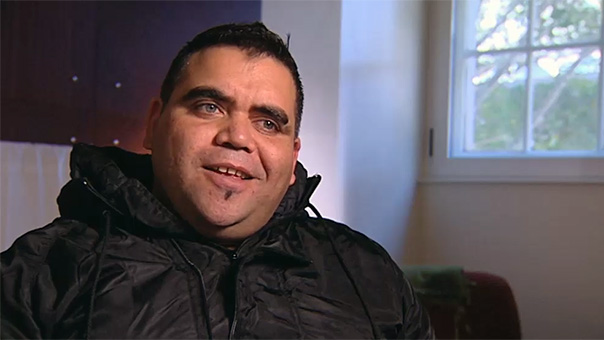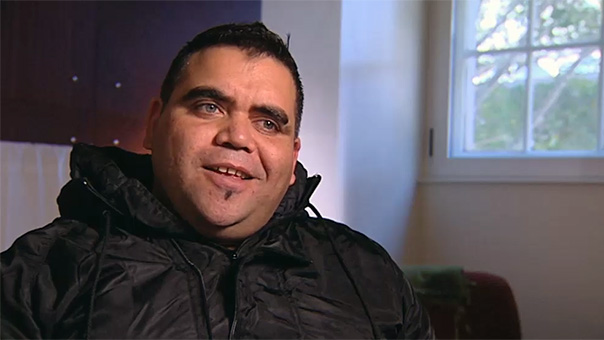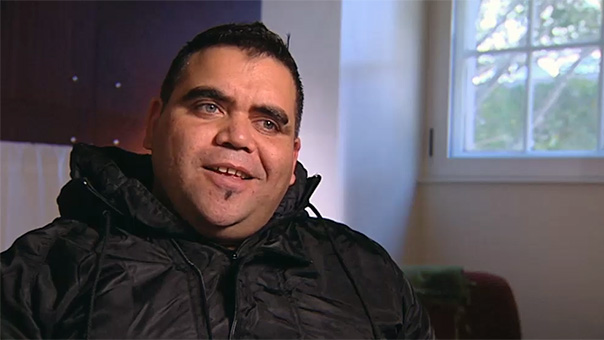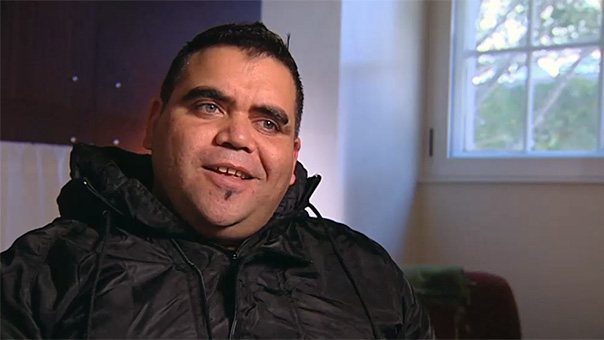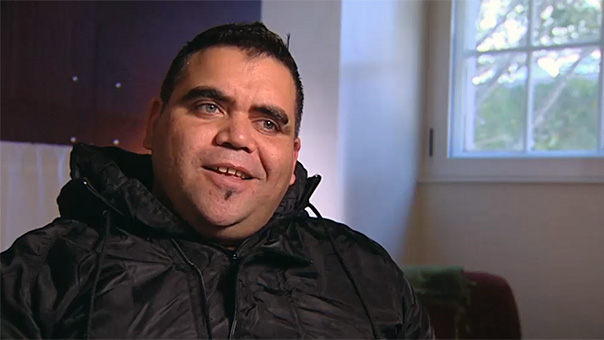4. Poetry writing process
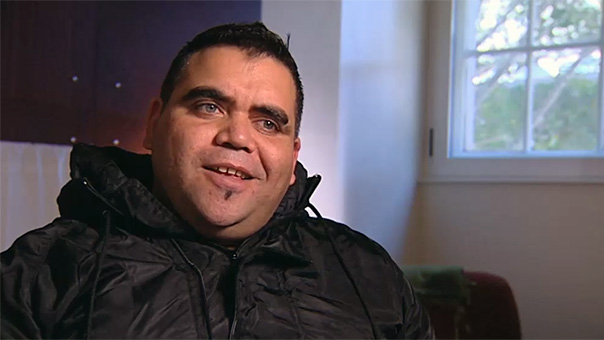
Viewing guide
-
Return to the topic that you chose at the beginning of the first lesson.
-
Can you refine this idea based on your later learning?
-
Do you have a different topic you’d like to explore instead?
-
-
Brainstorm this idea, thinking about a new poem that compliments your first one, presenting an alternative perspective or aimed at a different audience.
-
What do you think the expression 'sculpting the text' means?
-
Why would writing require such a disciplined approach?
-
What are Samuel's 'tools of the trade'?
-
Do you agree that writing would be a 'low-maintenance' art form?
-
Why does Samuel describe it that way?
-
What do you think would be the major rewards for a practising poet?
-
Take your brainstormed ideas and turn them into a structured poem such as:
-
a haiku
-
an ode
-
a Kennings
-
an echo verse
-
a limerick
-
an acrostic
-
a cinquain.
-
This exercise is designed to get students thinking about writing as a structured disciplined activity. Depending on the skill and experience of the class it could be valuable to precede this lesson with one focused solely on the different structures of poetry mentioned under the ‘Writing’ section above.
Links to structure guides
Syllabus outcomes
-
effectively uses and critically assesses a wide range of processes, skills, strategies and knowledge for responding to and composing a wide range of texts in different media and technologies (EN5-2A)
-
selects and uses language forms, features and structures of texts appropriate to a range of purposes, audiences and contexts, describing and explaining their effects on meaning (EN5-3B)
-
effectively transfers knowledge, skills and understanding of language concepts into new and different contexts (EN5-4B)
-
questions, challenges and evaluates cultural assumptions in texts and their effects on meaning (EN5-8D).
Interviewer: Samuel, how do you start writing your poems?
Samuel Wagan Watson: The concept just appears in my head like a sentence and I go from there. I'm very much a person, an artist that likes to use pencils and, you know, my pens and my pencils are very special to me. I, like sculpting the text on a blank piece of paper and I really sort of leave the computer work 'til the end. My poems are all sort of mapped out on a drop sheet and I stick to a regime of writing for twenty minutes everyday in my journals and I have a pretty complex journal writing regime.
Interviewer: You talk about a writing regime. Can you tell us exactly what that means?
Samuel: Basically my writing now and for the last, probably five years, has been a full time job. I haven't really done any other work but writing. Whether it's going into schools and running writing workshops. A third of my income comes from commissions. In Brisbane I just completed a commission for the Japanese Space Agency. And I get a lot of my work from Brisbane City Council. So, when you actually come to Brisbane you can walk through the city and find my text incorporated in architecture. The work with the Japanese Space Agency was for one of their corporate brochures, a space chain that's going to be launched on the international space station next month. So, yeah, basically I wake up of a morning, usually around five o'clock, have a little bit of a breakfast and then I'll open my journals and get in to my work. I'm now also working fulltime for 98.9 Murri Radio in Brisbane doing community announcements, so I try to get to the office early, fit in a little bit of my work. Last week it was streptococcus that I wrote about, this week it was tuberculosis. I try to be creative as much as I can. I encourage the other young indigenous project officer I work with to you know go out and buy a dictionary and just attack the dictionary, cut it up like a surgical procedure. Take a risk with words you've never used and you know writing is the most low maintenance of any art forms. You know Dostoevsky and some of those Russian writers, they wrote their great novels on bits of toilet paper and smuggled them out of prison. How hard is that to maintain? That's why I love it. I wanted to be a film maker, but film making is such an expensive craft. So, yeah it doesn't really cost that much to write everyday. Of course, you have to pay the bills I'm doing that OK now. I'm not one of these writers that has a couple of BMWs in the driveway or a yacht parked behind the house but I'm comfortable and because of my regime my writing allows me to pay the bills and have a few dollars in the bank and to sort of have a little bit of security.
Interviewer: What personal satisfaction do you get from writing your poems?
Samuel: I really enjoy what I do, but the satisfaction only comes when I see the client is happy with my delivery of work. I'm a horrible manager. I hardly make any deadlines, but I don't go that far over my deadlines. Or maybe once a fortnight, I'll meet someone through a writer's group who, you know, my little bit of advice can help them. That's where I find the real satisfaction in writing. Or if someone walks up to me and they say: 'I'm so glad that I didn't stay home tonight and watch Sex in the City. I'm glad I paid the five dollars to hear your poetry reading.' I mean, I mentor a lot of young writers in Brisbane and my advice to them is always the customer is always right. Show the audience a lot of respect when you're reading. Yeah.
